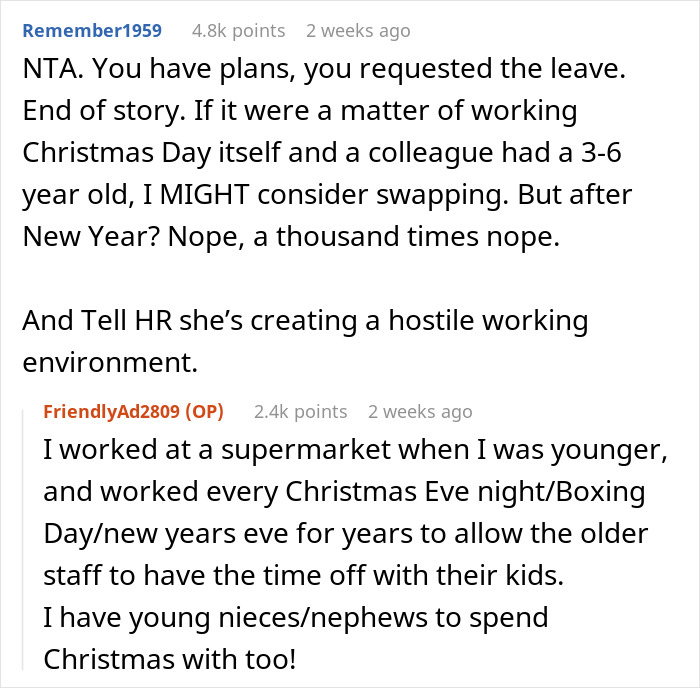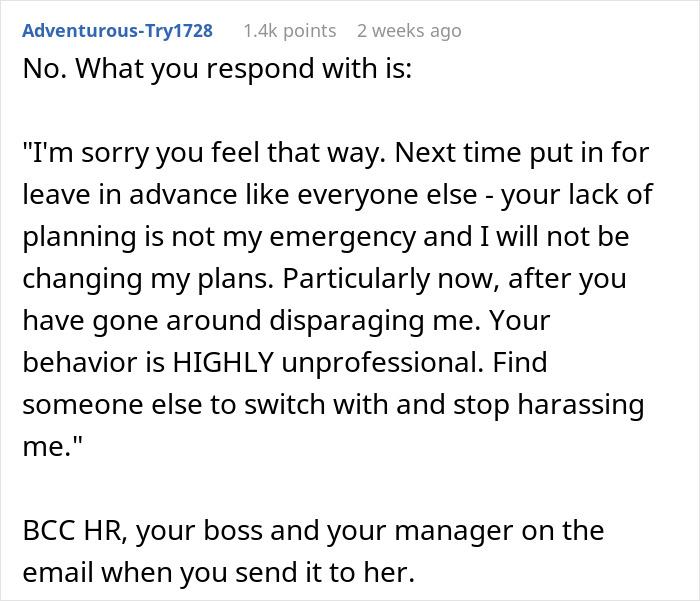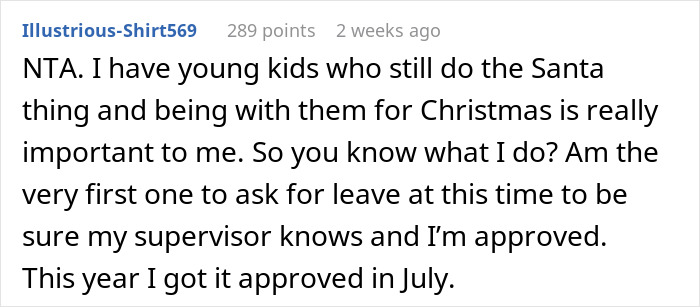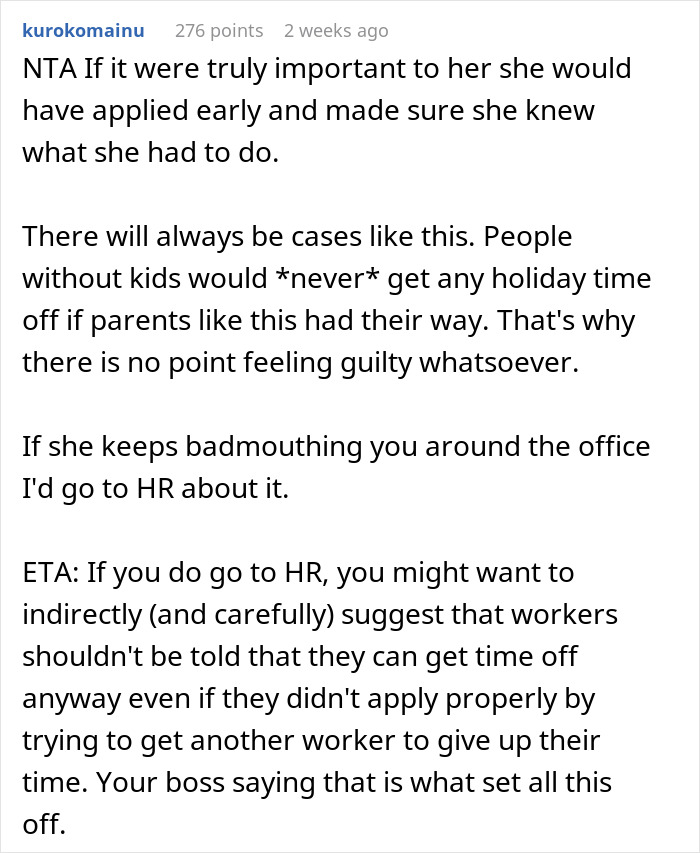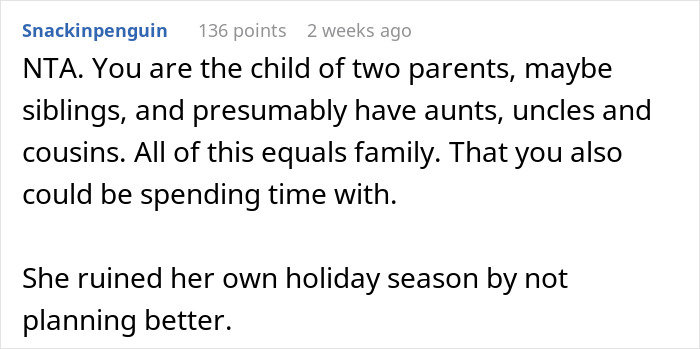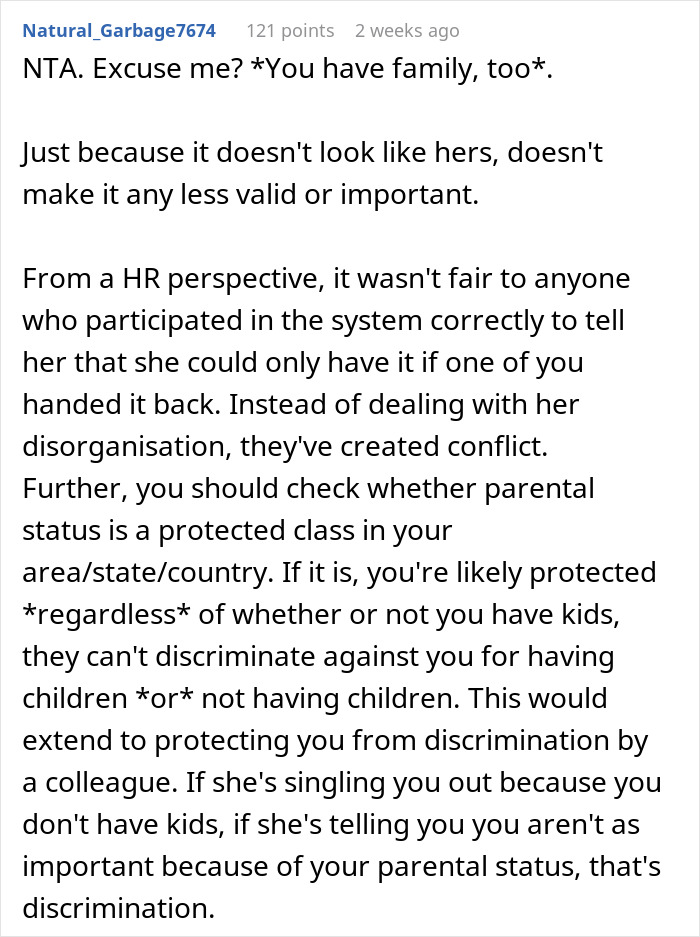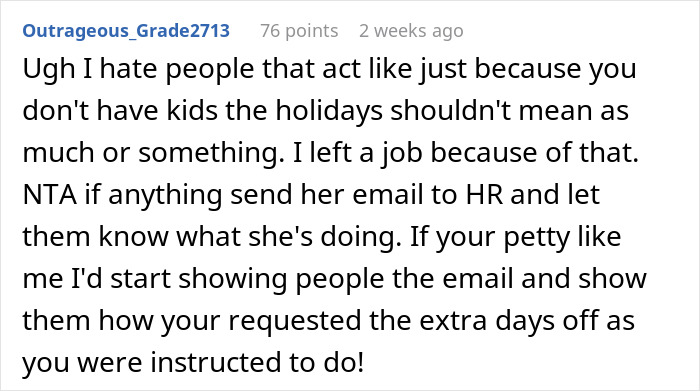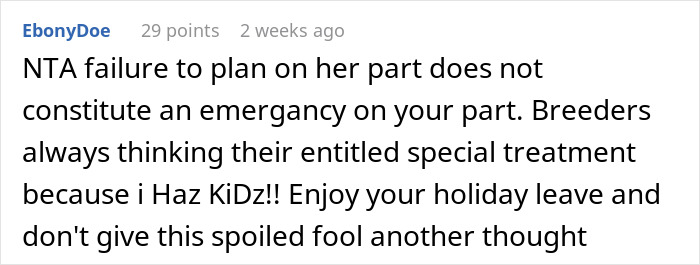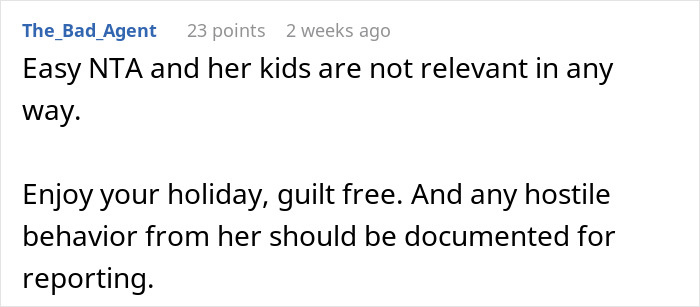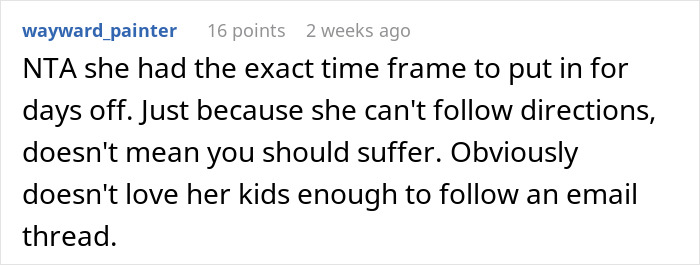The magic of the holiday season is particularly special for children, as their adorable awe and wonder surrounding Santa Claus can melt any Grinch’s heart. But being an adult doesn’t mean we have to abandon all of the fun of the holidays, and it certainly shouldn’t mean we’re obligated to work if we don’t have kids.
Below, you’ll find a story that was recently shared on the “Am I the [Jerk]?” subreddit, detailing how one employee started to wonder if they were in the wrong for defending their days off.
The holiday season is for all to enjoy, young and old

Image credits: Nicole Michalou (not the actual photo)
But according to this person’s colleague, parents are more entitled to days off than those without kids
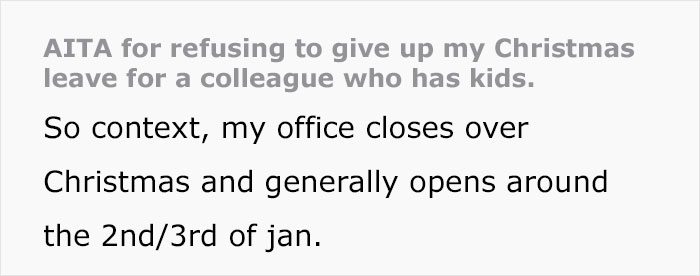
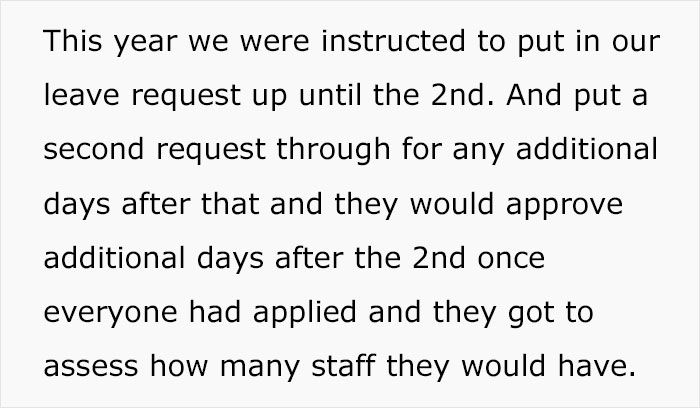
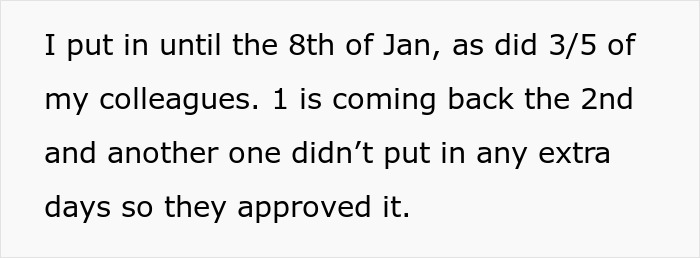
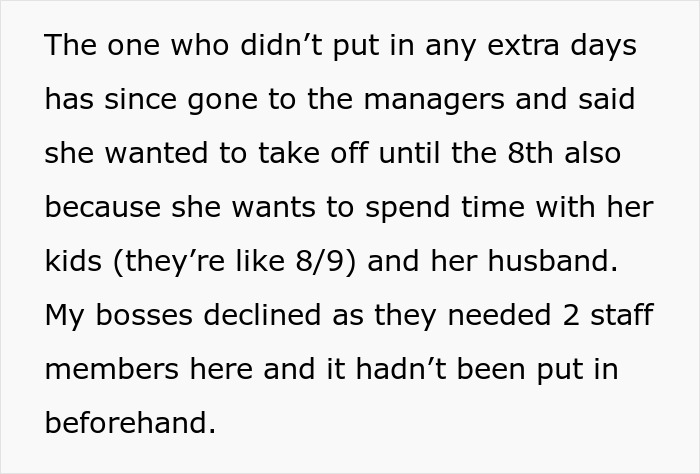


Image credits: Yan Krukau (not the actual photo)

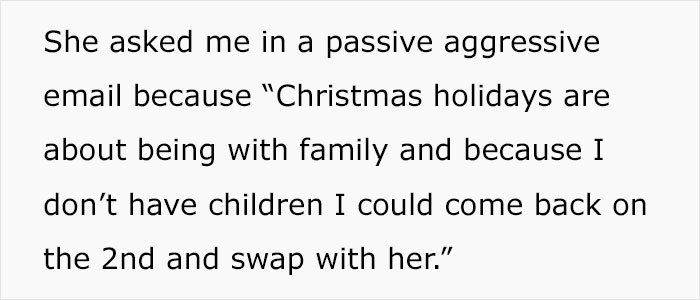
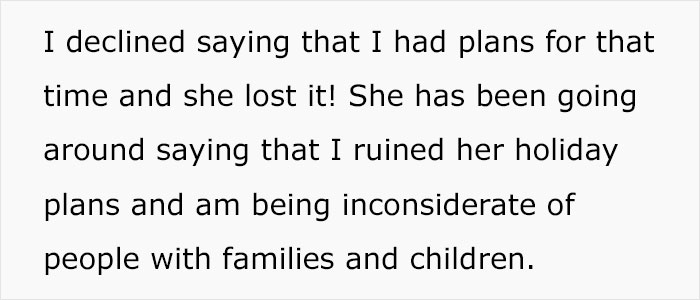
Image credits: FriendlyAd2809
Later, the employee replied to a few readers and provided more info on the situation
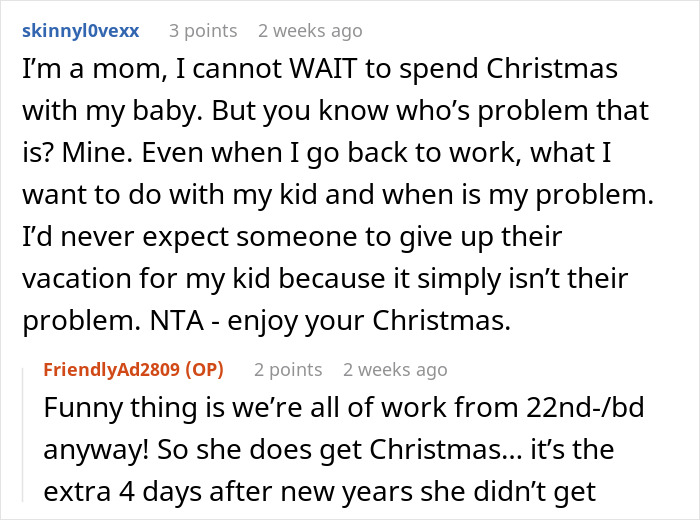
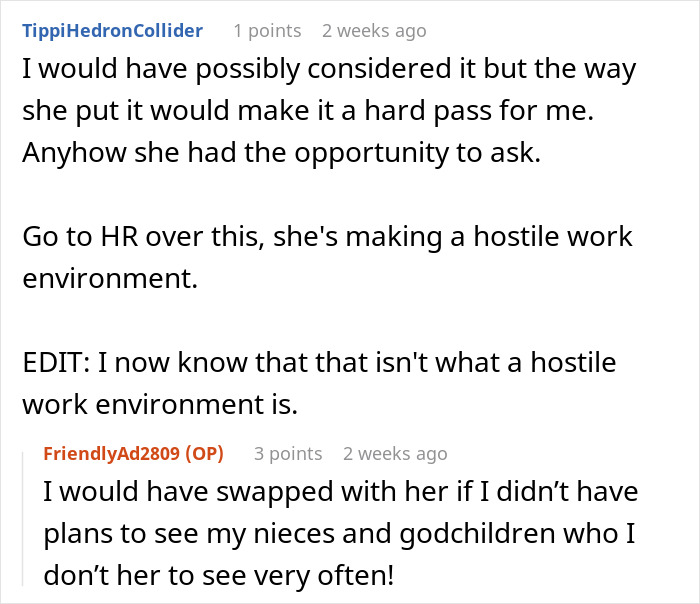
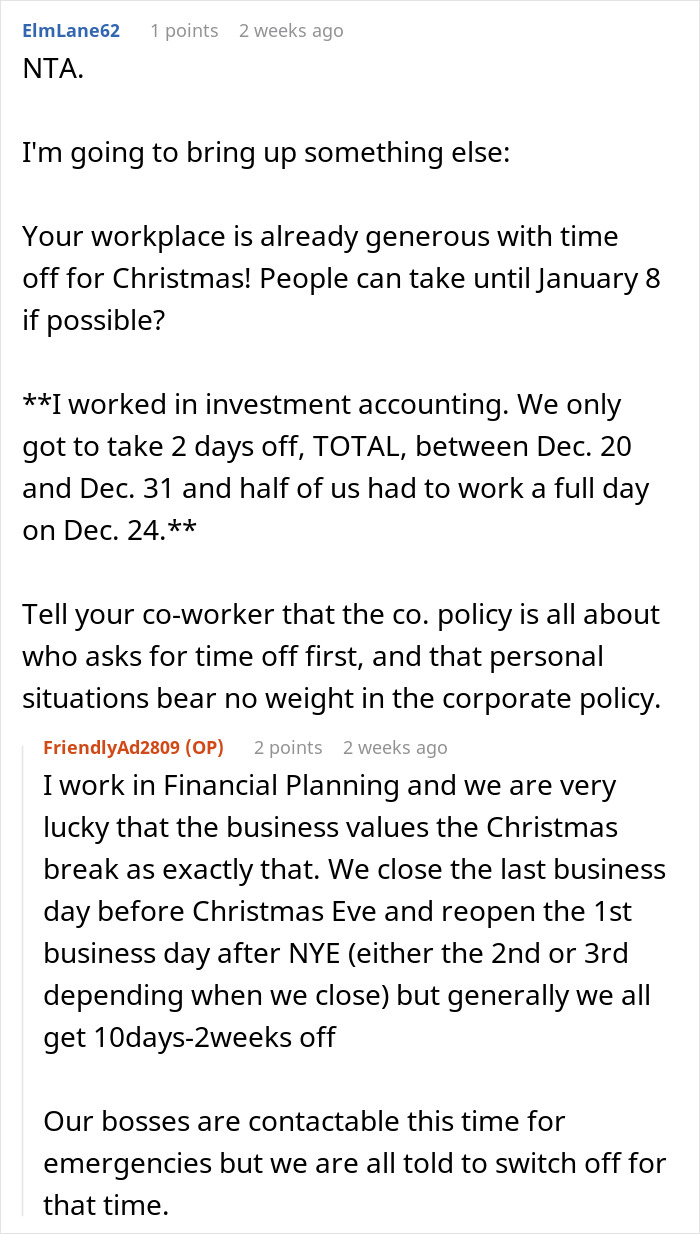
All employees should be treated equally when submitted time off requests

Image credits: Edmond Dantès (not the actual photo)
Juggling days off can always be a challenge for companies during busy times of the year. If it’s summer and children are out of school, every parent might try to plan a family trip at the same time. And during the holiday season, all employees would rather be spending time with their loved ones by the fireplace than typing away at a computer. But how can they decide who gets priority when approving time-off requests?
According to Bright HR, no employees should be favored when deciding who gets coveted days off. All team members should be treated equally to ensure that no one feels discriminated against. Many companies operate on a first-come, first-served basis for requesting days off, but this isn’t a perfect system either, as there will always be some days that everyone wants off.
Bright HR says it might be more fair to take turns with who has to work less popular days, to ensure everyone still has some days off around the holidays. Perhaps, managers can pull names from a hat or rotate who gets first pick on December days off. But they must be wise when accepting requests, as once you’ve said yes, it can be impossible to go back on your word.
But some parents admit that they’ve received preferential treatment in the workplace

Image credits: Ketut Subiyanto (not the actual photo)
While parents, in theory, should be treated the same in the workplace as everyone else, it seems like they often aren’t. The woman in this particular story clearly felt entitled to days off simply because she has kids, and there might be a system in place that has led her to believe she deserves days off more than anyone else.
According to a study from ResumeLab, where 80% of respondents were parents, 87% of those surveyed felt that parents receive more benefits at work. 86% also noted that parents tend to have preferential treatment when applying flexible work policies, and 85% believe moms and dads get priority when requesting paid time off.
Three quarters of those surveyed said that, overall, parents are treated better than those without kids in the workplace, and 70% of childfree workers report being given a greater workload at least once, simply because they don’t have kids. 63% of employees without children also said they’ve been denied time off before because they didn’t have little ones at home to take care of. And a whopping 81% of respondents believe that “child-related absences are more important for employers than the absences of the child-free.”
Time off is crucial for employees’ mental health

Image credits: Andrea Piacquadio (not the actual photo)
Everyone deserves to take time off from work to rest and enjoy the holidays, regardless of whether or not they have children. Burnout is a serious issue in many workplaces, and it can leave employees feeling drained, unable to cope, unable to sleep, more irritable, prone to relying on alcohol or other substances, with an increased risk of heart disease and high blood pressure, and more prone to getting sick.
Meanwhile, taking time off can allow employees to rest, relax, enjoy their lives, decrease stress and remind themselves what’s really most important. It’s easy to get caught up in the hustle and bustle of constantly working, but taking breaks from the grind is very important for our mental health. According to a study among women living in central Wisconsin, those who only went on vacation once every 2 years were 92% more likely to have depression than their colleagues who took one or more vacations per year. You don’t just deserve time off; you need it.
We would love to hear your thoughts on this situation in the comments below, pandas. Do you think this employee was right to defend their days off, despite being pressured by their colleague? Feel free to share, and then if you’re interested in reading another article discussing similar themes, look no further than right here.
Readers assured the employee they did nothing wrong and provided some suggestions for how to proceed
